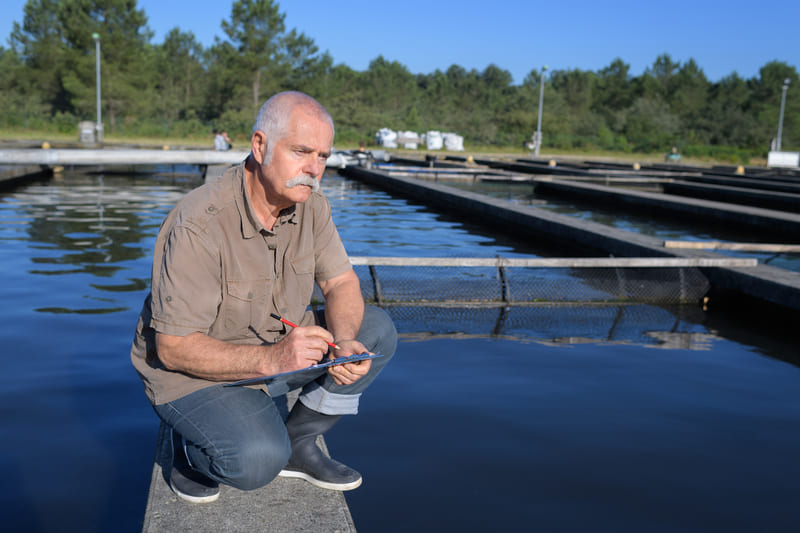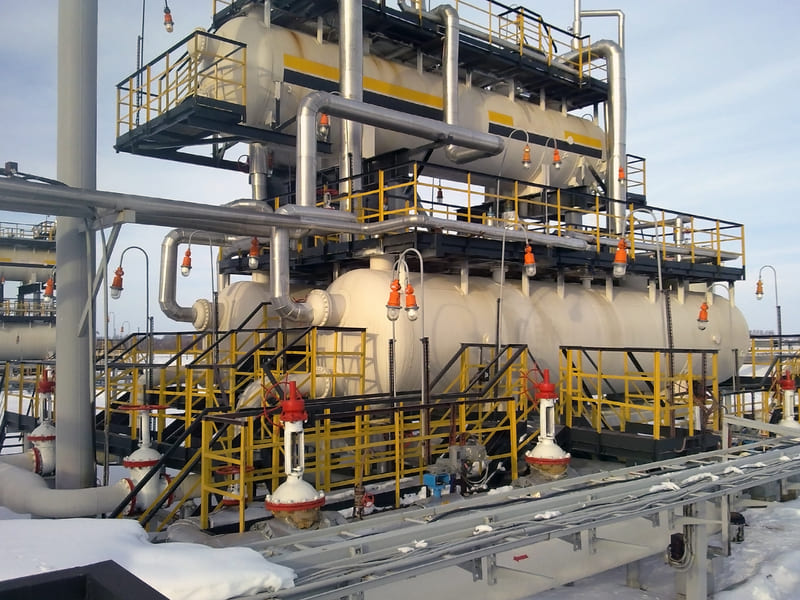For facilities that discharge wastewater, including manufacturing, wastewater treatment plants, automotive shops, carwashes, and facilities in other industries, oil water separator maintenance is not just a necessary part of operations—it’s a critical part of regulatory compliance and operational efficiency.
There are several different types of oil-water separators. Depending on the industry, the oil-water separator system your facility has will work differently than others, as some systems are better suited for higher oil concentrations or specific regulatory needs.
Gravity separators, which rely on the differences in density between oil and water to separate the two substances, are often used in automotive or light industrial settings, including small businesses such as quick lube shops or automotive repair shops. This differs from API separators, which are large, open tanks that separate water and oil, typically found in heavy industrial settings. Additionally, manufacturing or food processing facilities may use coalescing plate separators, which utilize angled plates to separate oil from water, and centrifugal systems that spin water will be used where oil concentrations are higher, such as in oil and gas or marine applications.
Regardless of the type of oil-water separator your facility uses, understanding proper maintenance, the frequency of maintenance, and ensuring compliance with regulatory requirements is crucial not only for the oil-water separator system itself but also for your business as a whole. Neglecting maintenance schedules, taking shortcuts, or failing to maintain your system properly can result in fines, downtime, and even environmental damage.
Why Oil Water Separators Matter?
You may wonder how oil-water separators can have such a significant impact on a business or how they can cause environmental damage if they are contained in your facility. Oil, grease, and hydrocarbons are products of industrial work. Because they can negatively impact waterways, whether through direct discharge or infiltration into sewers and storm drains, the government strictly regulates the discharge of oil or contaminated water.
Government regulations, primarily enforced by the federal and state EPA agencies, aim to protect our natural resources and environment, including water. When companies don’t comply with the regulations to protect our drinking water, they are fined, may be subject to legal ramifications, and can even be shut down.
That’s why proper oil-water separator maintenance is so essential. If these systems fail, contaminated water or oil can be discharged into otherwise clean water sources, resulting in significant problems. Not only will it put the business in hot water with the EPA, but it can also clog equipment and machinery in the facility, resulting in poor test results that can negatively impact the business.
Regulatory Risks You Can’t Ignore

The Environmental Protection Agency at both the state and federal levels generally oversees the effective treatment and handling of oil and wastewater following the Clean Water Act and other regulations. However, it is essential to note that local agencies may also have additional requirements, such as regulating stormwater discharge and implementing pollution standards. Some municipalities also establish discharge limits that must be adhered to.
Failing to comply with these regulations can result in a range of violations, from fines to forced shutdowns, which can negatively impact your company’s reputation and bottom line. Keep in mind that simple oil water separator maintenance isn’t enough—proper documentation must also be kept to show how and when it was maintained, repaired, and refurbished.
Furthermore, ESG reporting can also be impacted by improperly maintained oil water separators or incidents where contaminated water is improperly disposed of or spilled. Risks to this report’s accuracy can significantly impact the business overall. Environmental, social, and governance reporting can impact stakeholders’ faith in the industry, secure investments, and even affect public perception.
The Real Cost of Poor Maintenance
Not complying with oil water separator maintenance and regulations regarding treating wastewater and contaminated water will get your business in hot water with the government, but that’s not all. Businesses also need to consider that oil water separator maintenance impacts nearly every facet of the operations, as it can impact other equipment.
Without proper maintenance, equipment can fail, resulting in unexpected shutdowns that are costly in both time and expenditures. A reason for the failure will need to be investigated, parts will need to be secured, and then the vehicle will be repaired. Not only that, but pump or system failure can result in unscheduled downtime that affects business output, disrupting the delivery of service and products to customers, employees, and budgets. And, speaking of budgets, emergency cleanup costs are significant, not only in terms of what it takes to effectively and adequately clean up the error in accordance with regulations, but also in the fines mentioned above.
Staying current with an oil water separator maintenance plan will save money over time by contributing to operational efficiency. It eliminates the risk of unexpected shutdowns, fines, and other liabilities, and helps maintain a positive reputation, encouraging other businesses to want to work with you. Additionally, properly maintained equipment and machinery will last longer than those that are poorly maintained.
Proper Oil Water Separator Maintenance
Making sure your oil water separator is maintained correctly isn’t difficult; it just requires some specific actions. First, your business should implement a proper oil-water separator maintenance plan that includes regular inspections, conducted at monthly or quarterly intervals, to ensure the equipment and system are functioning correctly and not in need of repair.
Additionally, actionable maintenance should be performed at regular intervals, depending on the volume of oil your business handles, the size of your system, and the type of treatment and separation being performed. Typically, this process includes replacing or cleaning filters and media, properly removing oil and sludge buildup, removing any accumulated oil or solids, checking the inlet and outlet flow for discharge efficacy, and ensuring the system is clean and operating correctly. Finally, log books and maintenance records must be kept up to date, detailing the actions taken to ensure the system is maintained correctly and in compliance with regulations.
Stay in Compliance and Keep Water Clean With Proper Oil Water Separator Maintenance
Oil water separator maintenance protects your business, assets, and your people — and in the grand scheme of things, it also protects the environment. If you’re unsure whether your maintenance schedule is being implemented properly or if your OWS system is up to code, we can help by reviewing your system or conducting a professional inspection. Connect with Environmental Remedies for your free quote on oil water separator maintenance today!






